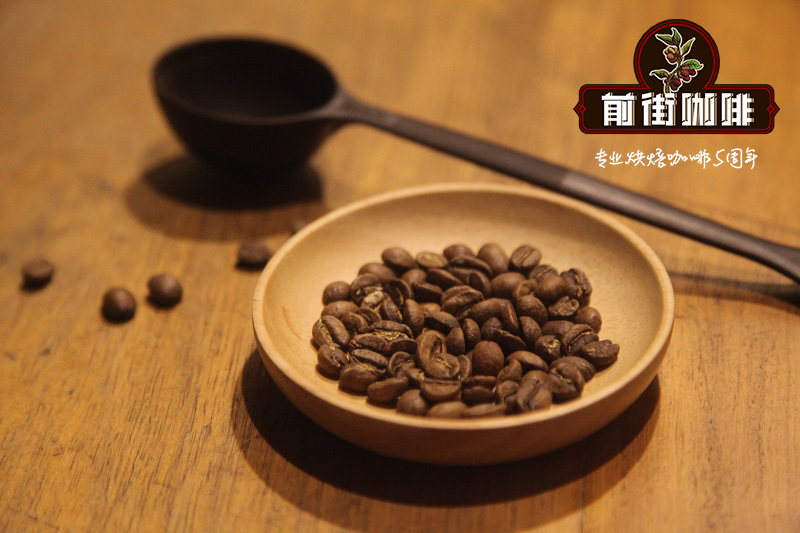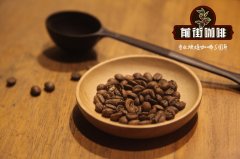South American coffee bean beads-characteristics of Bolivian coffee beans creamy sticky taste and sweetness

Professional coffee knowledge exchange more coffee bean information please follow the coffee workshop (Wechat official account cafe_style)
Front Street-introduction to Bolivian Coffee
Bolivia's coffee production is dominated by a smallholder production system, with 23000 small farms ranging in size from 2 to 9 hectares, and in particular, about 40 per cent of Bolivia's coffee culture is mainly sold domestically. The main varieties are Arabica, such as Iron pickup, Kaddura, Cleo, Kaduai and Katim, as well as new varieties of gesha and sl28. The production season is from July to November, most of them are washed coffee beans, only some of them are sun-treated.
Almost all of Bolivia's planting is organic, which should be the focus of the next wave of boutique development. The main reason is Bolivia's backward economic development and infrastructure. Bolivia is still the poorest country in South America. Although Bolivia's unique changeable terrain is beneficial to the growth of coffee, poverty and poor infrastructure are key factors in coffee processing, transportation and quality.
The most famous producing area in Bolivia is La Paz, including Caravani, North & South Yongas, Inquisivi and so on. The region is best known as one of the most dangerous roads in the world, nicknamed Yongas Road of the Road of death, also known as "the most dangerous road in the world".
Even if the environment is so suitable for the development of coffee beans, poor infrastructure has become the biggest obstacle to coffee processing, transportation and export, so the output is far lower than that of other coffee boutique countries. Every time I get Bolivian beans, they are very precious.
From 2004 to 2009, Bolivia also held a COE competition. In the first COE competition held in 2004, there were 13 boutique bean cups with a total score of more than 84 points, and Champion beans scored as high as 90.44 points.
However, after 2009, the COE competition in Bolivia was cancelled because the Bolivian government was very anti-American and did not want the United States Agency for International Development (USAID) to finance any additional development plans in Bolivia, and there were no other sources of funding for the COE program.
Although Bolivia's coffee share is small and its popularity is not high, Bolivian coffee beans are almost all sweet, with floral, creamy and chocolate rhymes that almost everyone will like. The flavor is very direct and easy to understand, and there is great potential to grow amazing varieties.
In short: Qianjie is a coffee research hall, happy to share the knowledge about coffee with you, we share unreservedly just to make more friends fall in love with coffee, and there will be three low-discount coffee activities every month. The reason is that Qianjie wants to make more friends drink the best coffee at the lowest price, which has been Qianjie's tenet for 6 years!
END
Important Notice :
前街咖啡 FrontStreet Coffee has moved to new addredd:
FrontStreet Coffee Address: 315,Donghua East Road,GuangZhou
Tel:020 38364473
- Prev

What coffee beans are suitable for beginners? Bolivian coffee beans have a long finish.
Professional coffee knowledge exchange more coffee bean information please follow the coffee workshop (Wechat official account cafe_style) front street-Bolivian coffee introduction menu coffee names are mostly named after the place of origin, this kind of coffee is also known as plain coffee or single coffee. If you can distinguish these coffees according to their origin and taste, it will be helpful to choose the coffee party that suits your own taste.
- Next

Costa Rican Coffee Brand recommends musician Series Coffee Mozart can't be missed
Professional coffee knowledge exchange more coffee bean information please follow the coffee workshop (Wechat official account cafe_style) front street-Costa Rican musicians series Mozart introduced Costa Rica Tara Ju Canette Manor musicians series raisin honey treatment Mozart Costa Rica Tarrazu Finca Canet Rasin Honey Process Mozart flowers, strawberries Swiss sugar
Related
- Beginners will see the "Coffee pull flower" guide!
- What is the difference between ice blog purified milk and ordinary milk coffee?
- Why is the Philippines the largest producer of crops in Liberia?
- For coffee extraction, should the fine powder be retained?
- How does extracted espresso fill pressed powder? How much strength does it take to press the powder?
- How to make jasmine cold extract coffee? Is the jasmine + latte good?
- Will this little toy really make the coffee taste better? How does Lily Drip affect coffee extraction?
- Will the action of slapping the filter cup also affect coffee extraction?
- What's the difference between powder-to-water ratio and powder-to-liquid ratio?
- What is the Ethiopian local species? What does it have to do with Heirloom native species?

